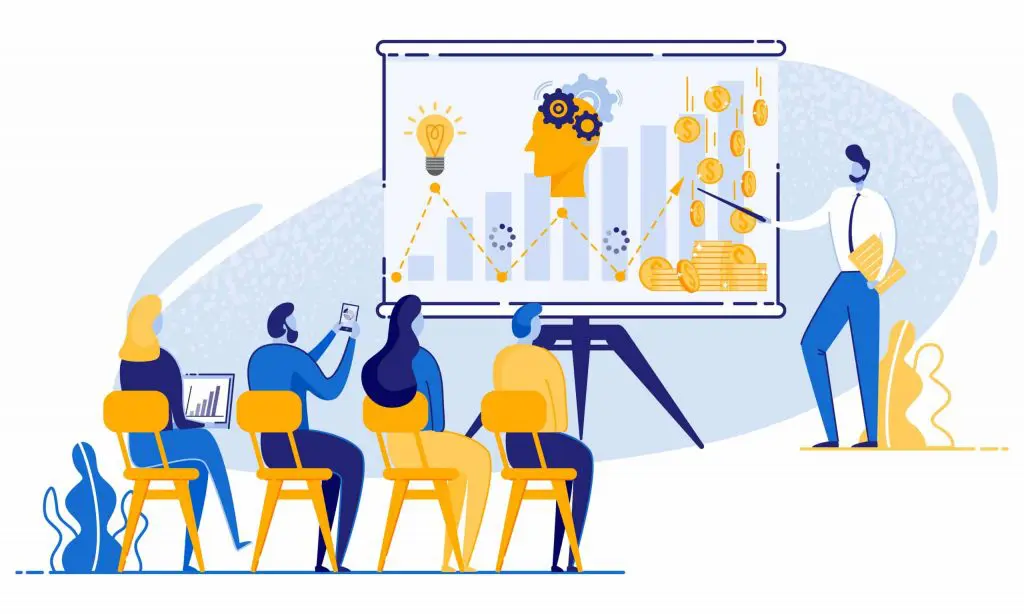Emotional Intelligence – 5 proven strategies to improve and impact daily life
Emotional Intelligence
Table of Contents
What Is Emotional Intelligence?
Emotional intelligence, or EI, was a concept coined in the mid-nineteen-nineties. Yet it gained popularity in 1995 as the best-seller written by Daniel Goleman.
He defined EI as the set of skills and traits that guide leadership. We will use this other definition to make it more relatable to us. Emotional intelligence is the ability to use, comprehend, and manage emotions. Whose emotions? Yours and that of others.
People who have a high level of emotional intelligence are particularly good at some things. Emotional awareness, for example, is one of them. Those with high EI can easily recognize their own and other people’s emotions.
They can also use such feelings to help themselves solve problems and think more clearly. They can also control their emotions when necessary and assist others in doing the same.
Emotions for a circular pattern
In a world where trauma is normal, healing can be difficult. PTSD patients often find themselves re-traumatized by their thoughts and emotions which reinforce one another in what feels like an endless circle of negative experiences that leave these individuals feeling helpless to stop the repeating cycle from happening again.
The main way for them then becomes gradual as they focus on things outside themselves – such as the adrenaline rush through your body during emergency response work or standing up against danger–that give meaning back into life following adversity instead of focusing solely inwardly without any outlet at all because there are no safe outlets anymore given how much we’re exposed not just emotionally but physically too.
The psychology of success is a powerful force. It’s not just the chemicals in our brain that make us successful, but also how we think and feel about ourselves which leads to greater accomplishments both professionally as well personally! It all starts from within- with positive emotions comes glowing skin; clear eyesight (or better yet– vision); increased creativity levels…the list goes on indefinitely when you’re feeling good enough no matter what society might say or think because there isn’t any room left for negativity after living an amazing life fulfilling yourself physically, academically, etc.
What are the components that regulate Emotional intelligence?
Self-Management
This refers to the ability to regulate your emotions healthily. It also includes being able to take the initiative, as well as following through on commitments and changing your behavior to suit changing situations.
Self-Awareness
When you’re aware of your feelings and their influence on your thoughts and actions, you know your strengths and flaws and have self-confidence.
Social Awareness
Social awareness involves being empathetic. When you have social awareness, you can perceive other people’s feelings, requirements, and concerns.
- Social awareness enables you to feel comfortable in a social situation.
- As a result, you will also recognize the balance of power in the groups you associate with.
Relationships Management
This is the ability to understand how to build and maintain positive relationships. It also helps you communicate well and inspire and influence others. Managing relationships will help you to collaborate with others and resolve disputes with success.
When someone possesses these characteristics, we can call them emotionally intelligent. Knowing what makes up emotional intelligence is excellent, but why should it matter to you? It does matter, do read ahead.
How does emotional intelligence impact your daily life?
Your Academic or Work Performance
High EI can assist you in steering through social difficulties at school or at your job. Those with high EI succeed at leading and encouraging others, bringing them success, whether on the job, at home, or at school.
Your Physical well-being
If you can’t manage your emotions, you can’t control your stress. It can cause extensive health issues. For example, uncontrolled stress raises blood pressure. It also raises the risk of strokes and heart attacks. And it can even speed up aging. Developing emotional intelligence helps maintain good physical health, preventing all these.
Your Relationships
Your relationships are essential. You will communicate better if you develop emotional intelligence. Also, when you know how others are feeling and can respond appropriately, you will form stronger bonds at home, at work, and at school.
Beyond making you a people person, EI is vital for success in life
It will open up new doors and allow you to connect with others. In the end, you’ll feel happy and satisfied because of having this beneficial attribute.
The mind-body relationship is becoming clearer thanks to the advent of modern science. Likewise, the link between our thoughts and our emotions is also becoming better known. Research has demonstrated an obvious correlation between good emotions and strong psychology.
How do discipline and focus help improve emotional intelligence?
There are many alternatives to what you should be paying attention to, but there is still hope for those who want more discipline and focus in their lives. You can increase your levels over time with methods that have been proven effective because they work!
Meditation
Think of meditation as a way to increase your focus and discipline over time. It’s one that has been proven by studies, with medical benefits such as the alleviation of depression and lowering of blood pressure! You can practice this lifelong art in various ways–you might choose an object like a yantra (symbol) which would allow for long periods of concentration on it alone without distractions. In Tibetan spiritual systems practitioners were given these devices called “yoga bracelets” made from animal bones when beginning their journey into spirituality; they serve much the same purpose today except now there are several different designs available so everyone may find his/her own personal favorite design
Mindfulness
Mindfulness is similar to meditation where we simply observe what is happening in our minds. This is very beneficial in a world that is so externally orientated. We can observe how we feel and how these thoughts stimulate certain emotions. Over time, we can catch the negative thoughts before they gain too much momentum and ruin the whole day.
Rest and Relaxation
Everybody knows that rest and relaxation are essential. It is also proven that willpower is a fixed resource that is at its highest point in the morning and lowest point in the evening. But many people really fail to optimize their rest, which is also a way to optimize their discipline and focus. An example of this would be focusing on a good night’s sleep – this could entail maintaining a clean room free of technology and clutter, diffusing some essential oil in the bedroom, and eating some sleep-inducing food a few hours before bed. It is also good to restore willpower during the day at frequent intervals and to learn to completely switch off from work at the weekends.
Diet and Exercise
Diet and exercise are integral to how much focus and willpower we have. When people eat a healthy and balanced diet with appropriate exercise, they will have more focus and willpower with regard to what they want to achieve. The biggest challenge in this regard is caffeine. It helps to get the work completed but is a bad move in the long run which leads to a lesser quality of life. If you must have a coffee, make sure it is high quality with little sugar and taken in the morning as opposed to the evening. Otherwise, it will disrupt sleep.
Deep Communication
Deep communication is another technique where we work with a therapist or practitioner to document and analyze our own patterns for further insights.
Creative Work
Creative work is about self-expression. An intense dedication to creative work is an excellent way to remove any negative tendencies. What can happen is that we are so focused on artistic inventions that we are not focusing any of our energies on the things that make us weak. This works far more quickly than meditation and mindfulness if we can find something that we are truly passionate about.
How can Emotional Intelligence be improved in modern life?
Emotional intelligence is a little difficult to pin down in many ways, especially with the modern-day emphasis on mental strength. While the two are interrelated, it can help to work on emotional intelligence as its own practice. There are 5 proven ways to improve emotional intelligence.
Social Situations
Learning to handle yourself in social settings is the primary means through which emotional intelligence can be increased. Some people find social situations quite painful, but they are often the best way to excel. If you really want to fast-track emotional intelligence, consider public speaking or debating. These are not merely mental practices but they will require emotional skills to execute successfully.
Be expressive
The majority of people do not know how to express themselves. In many ways, society teaches us to keep our emotions repressed, with a politically correct movement that prevents people from stating the truth. To offset this, learn to express yourself as much as possible. If not in a public setting, you can write or paint in ways that express how you truly feel. Expression is essential to well-being and its opposite, repression, will result in an unhappy lifestyle.
Participate in Charitable activities
While many people are focused on acquiring material possessions, studies have shown that giving away things and taking on volunteer work actually leads to increased meaning and happiness in life. Seeing how other people live in substandard conditions is an excellent way to increase emotional intelligence. It will increase your empathy and compassion.
Direct Communication
The most direct way to increase your emotional intelligence is to find someone you are close to (such as your partner) and discuss how you feel. This will help you to understand how the other person feels and for you to release pent-up frustrations. Releasing bottled-up energy can assist in personal mastery, as there will be little holding you back. Good listeners are rare to find, but they are invaluable.
Evaluation
Most people live in subjective bubbles. For example, the authoritarian manager can often have no idea how he or she comes across to others. You can evaluate how you make others feel in order to improve your emotional intelligence. Another way to evaluate your emotional intelligence is through journaling your daily experience and quiet reflection. Always remember that your relationship with yourself will be reflected in your relationship with others.
Hope this blog helps you go to the next level of understanding of emotional intelligence. It is a pleasure to inform you that we have excellent courses relating to emotional intelligence on our website http://clap.skillculture.in.
We have more blogs that can motivate you to learn and understand more about leading as an entrepreneur, and improving the efficiency of taking decisions, project management, and many more.



Responses